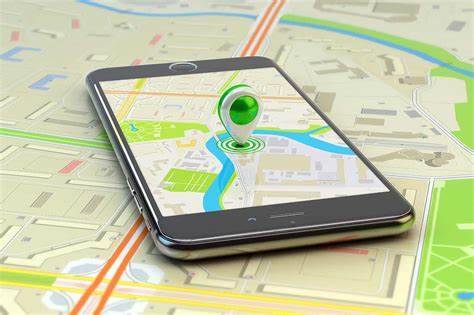Weeks ago, taxi driver Hussein Khalil was driving in Beirut when he was surprised to see his location on the map showing him in the Gaza Strip, due to repeated interference disrupting both air and ground transportation. Lebanon alleges that Israel is behind this issue. Khalil (36 years old), an Uber driver, told AFP while navigating the crowded streets of Beirut, "We have been suffering from this problem a lot for the past five months." He continued, "Sometimes three days go by during which we cannot work at all, and sometimes we might spend an hour or two without work... and of course, we lose."
As a result, Khalil has begun ignoring the electronic map that no longer shows locations accurately, opting instead to call customers directly to find out where they are. Since the escalation along Lebanon's southern border between Israel and Hezbollah, a day after Hamas launched an unprecedented attack on southern Israel on October 7, residents in Beirut have noticed varying degrees of disruption in the functionality of widely used electronic maps like Google Maps. On several occasions, when opening Google Maps, a person appears to be at Beirut Airport even if they are not there.
The interference appears to extend beyond Beirut to neighboring Cyprus, where a journalist from AFP found herself marked on the map as being at Beirut Airport while she was in the coastal city of Larnaca. In Jerusalem, a map placed an AFP journalist in Cairo. Sometimes, the map places users much farther away, as happened to Khalil, who shows pictures taken of his phone screen depicting him at one time in Rafah and another time in Baalbek (east) while he was over 60 kilometers away in Beirut. The driver wryly noted, "A customer called me and asked, 'Are you in Baalbek?' I told her no, I need two minutes to arrive at your location."
### Hezbollah's Confusion
The disruption in location services via ride-hailing apps like Uber is due to interference with Global Positioning System (GPS) signals. Lebanon accuses Israel of deliberately causing this amid tensions with Hezbollah. Freddy Khoury, a security analyst for the Middle East at Rain Network, a risk information company, explained to AFP how "Israel uses GPS jamming to disrupt or confuse Hezbollah's communications." Khoury added that Israel also resorts to "GPS spoofing, another tactic used to send false GPS signals to disrupt and confuse the operational capabilities of drones and precision-guided missiles, which Hezbollah possesses a 'large arsenal' of."
As of June 28, the GPS Jam monitoring site shows a high level of interference above Lebanon and parts of Syria, Jordan, and Israel. In response to an AFP inquiry regarding the interference in northern Israel, a spokesperson for the Israeli Defense Ministry only stated, "Currently, we cannot speak about operational matters." However, the Israeli army had clarified at the beginning of the war that they were proactively jamming GPS "for various operational requirements."
Residents were informed that this measure could disrupt apps utilizing GPS, following increased jamming activities the day after October 7, pertaining to both Gaza and along the Israeli-Lebanese border.
### Navigation Concerns
Perhaps the biggest concern for Lebanon is the impact of the jamming on aviation, prompting the country to file a complaint with the UN Security Council on March 22, condemning "Israel's violations of Lebanese sovereignty through jamming navigation systems and the safety of civilian aviation in the skies over Rafik Hariri International Airport... since the onset of the war on Gaza." The Civil Aviation Directorate has also issued a circular to pilots "operating aircraft to and from" Beirut Airport since March, "stressing the necessity of relying on terrestrial navigation equipment rather than depending on the signals received via GPS due to the current jamming in the area" to ensure safety, according to Fadi Hassan, General Director of Civil Aviation, in remarks to AFP.
As a result, pilots have turned to ground navigation devices instead of using GPS as a primary tool, and ground navigation systems as a backup. Hassan stated, "It's unreasonable that in this technological age, a pilot wanting to land at our airport cannot benefit from GPS due to interference from the Israeli enemy." He added, "This situation is unacceptable and should not continue. A pilot should have two means available when landing at any airport."
Despite this, he emphasizes the commitment of his administration to "maintain ground navigation equipment at all times to provide the necessary signals for pilots to land safely at the airport." Indeed, pilot Avedis Seroubian, who has been flying for five years, noted that he has stopped relying on GPS in recent months. He remarked, "We are used to it, we don't rely on it at all, we ignore it, and we fly based on the compass and paper maps." However, he explained that the challenges posed by this change are unprecedented.
The pilot elaborated in a phone call with AFP, "Sometimes we are at an altitude of 20 miles (32 km) over the sea, yet the screen shows us above the summit of Qornet El Sawda (more than 3,000 meters above sea level)." He added, "Just imagine the panic that we could experience." He spoke of another challenge that poor weather conditions pose, clarifying, "When you can't see the ground, what happens? Suddenly we panic when we realize we're in a place we are not really in. This could lead to an accident or disaster."




